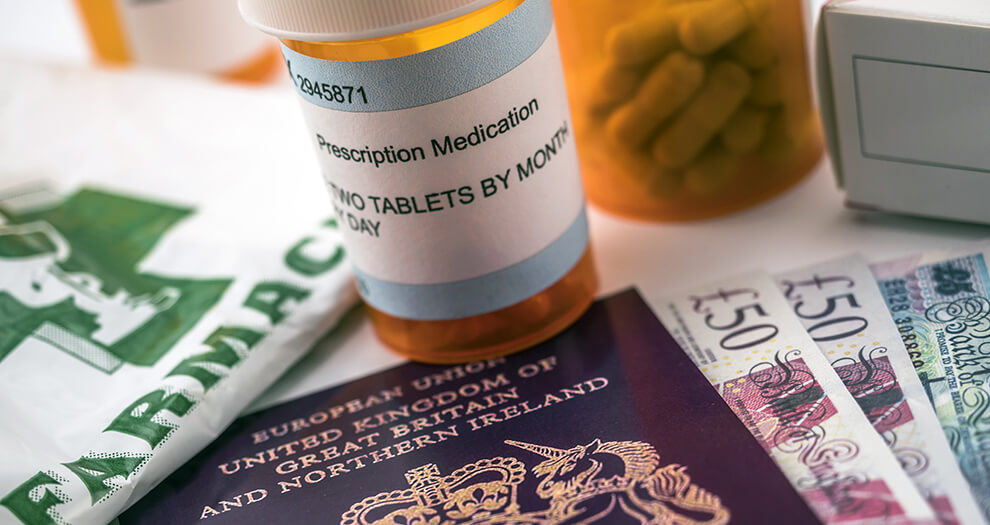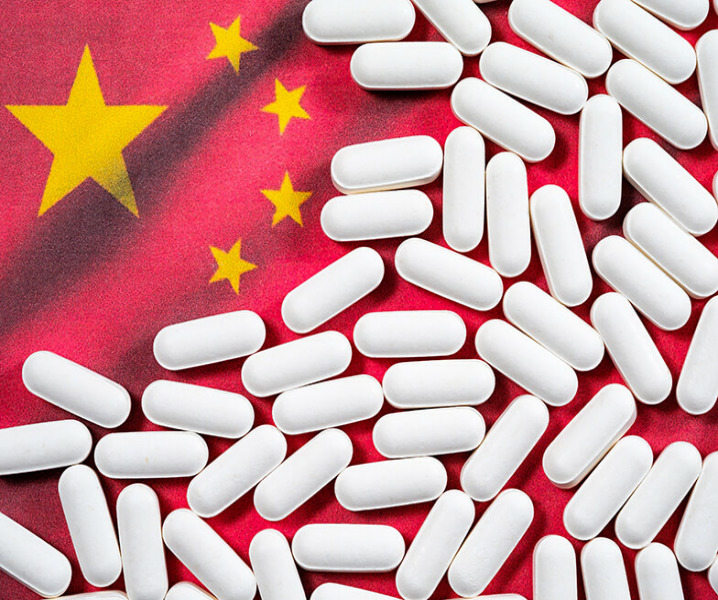Pharma importers forced to reorganise supply chains due to Brexit complications, says medicines trade expert

EU/UK trade deal fell way short of UK’s initial expectations for medicinal products ahead of negotiations, says Peter Gough at NSF International
Pharmaceutical companies sending medicinal products into the European Union have had to reorganise their supply chains to bypass the UK as a first port of call due to extra red tape introduced as a result of Brexit, according to independent public health certification body, NSF International.
In a March 17 webinar, Peter Gough, Vice President, NSF Pharmaceutical Services, EMEA, said that the UK’s departure from the European Union on January 1 meant there was now a requirement for re-testing and Qualified Person (QP) certification of medicinal products exported from the UK to the EU.
He said that whereas previously, it was acceptable to send EU-bound medicines from the UK to a European warehouse of a Wholesale Distribution Authorisation holder, since Brexit they are required to go to a facility holding a Manufacturing Import Authorisation to be tested and QP certified.
“This means a lot of companies have had to reorganise their supply chains so if a product was produced outside of the EU, for instance in India, it makes no sense now to import it into the UK first if it’s destined for the European market because it will need re-testing again on importation into the EU,” Gough told the webinar.
Terms of trade deal
Gough was also critical of the EU/UK trade deal agreed at the eleventh hour on 24 December 2020, saying that with regard to medicinal products – Annex TBT-2 in the final document -- the agreement included very few of the items that the UK had previously stated on its wish-list ahead of negotiations.
In June 2020, the UK government published its ‘comprehensive free trade agreement’ negotiating document, but according to Gough, the UK eventually got a very small fraction of what it went into the trade negotiations asking for, with significant consequences.
He showed that ahead of the deal, the UK had originally sought a lengthy list of agreements on medicines, including acceptance of batch testing certificates and Good Clinical Practice inspection reports, the right to conduct pre-approval inspections and information sharing on a two-way alert programme, pharmacovigilance and clinical trials.
However, the final deal fell far short, with none of these items included, Gough said.
“The trade agreement includes very little; to say it was thin for medicines would be an understatement,” he said. “The only real agreement was mutual recognition of Good Manufacturing Practice (GMP) inspections, which means the EU and the UK will accept GMP inspections performed by each other and not have to routinely inspect each other.”
He stressed that this arrangement was not a mutual recognition agreement (MRA): “It does not include re-testing so that is still required on imports from Great Britain to the EU."
Noting that the position with respect to the impact of Brexit keeps changing, Gough drew attention to a recent update on guidance from UK drug regulator, the Medicines and Healthcare products Regulatory Agency (MHRA), on the list of approved countries for batch testing, promising a review of the UK’s acceptance of testing done in European Economic Area countries before December 31, 2022 and a two-year notice period in the event of any changes.
"So this removes the January 1, 2023 hard deadline for GB re-testing of imports from the EEA," he said. "Hopefully, the EU and UK will be able to agree a MRA to remove the need for re-testing of medicines moving in either direction."
Questions over future MRA
However, asked why there had been no continuation of the MRA between the UK and the EU – which had previously been in place for 47 years while the UK was a member of the bloc—Gough replied that politics was to blame.
“The EU is scared of what they call ‘contagion’: if leaving the EU looks like a good idea, other countries may choose to follow the same path and so it’s in the Commission’s interests to make leaving the EU as bad an idea as possible and for the consequences to be as dire as possible.”
He added that following the strained relationship between the two parties throughout the negotiation process, “my view is that politics will stand in the way of us getting a mutual recognition agreement for many years to come.”
Gough said that one key outcome of Brexit would be that the two parties’ respective drug regulators would encounter restrictions on future collaborations.
“I’m sure left to their own devices, the MHRA and the European Medicines Agency would agree a pretty comprehensive working arrangement of sharing information and working together but I suspect they will not be allowed to by their political masters, so what we’ve got is a very, very thin agreement,” he said.
With regard to active pharmaceutical ingredients imported to the EU from the UK, Gough said these required UK drug regulator, the MHRA to issue written confirmations of compliance with the EU GMP “as the UK does not currently appear on the Commission whitelist for API importers.”

Related News
-
News EU-GMP licence positions MediCane Health as possible cannabis export hub
MediCane Health's EU-GMP certification helps to bridge the pharma-cannabis gap -
News Panaxia's medical cannabis facility in Malta gains EU-GMP standard
This second facility gives the company a significant power multiplier for export capacity and geographical reach -
News China SXT's new lyophilisation facility secures pharmaceutical manufacturing permit
The move, coupled with the plants's passing of a pharmaceutical GMP compliance inspection, will enable company to accelerate the R&D of its novel Advanced TCMPs -
News Europe approves SK Bioscience’s global COVID-19 vaccine plant
CDMO's site becomes the first vaccine production facility in South Korea to obtain EU GMP certification, allowing it to ship to Europe -
News Pharma Explained: What is Quality Assurance?
Need clarity on determining your QA from your QbD and your cGMPs? You’re not alone! In our new Pharma Explained series from CPHI, we bring you clear cut definitions from industry experts on a myriad of Pharma Terms, delivered in bitesize video presenta... -
News 17th Annual CPHI Pharma Awards winners announced
Excellence in Pharma recognised at virtual ceremony taking place at the CPHI Festival of Pharma. -
News Successful MHRA regulatory inspection for Scottish CMO Symbiosis
Inspection conducted remotely using video-conferencing and an online private document sharing platform. -
News DuPont's seaweed-based soft capsule ingredient gains non-GMO certification
SeaGel offers drug and dietary supplement manufacturers an animal-free and sustainable alternative to traditional soft capsules.
Position your company at the heart of the global Pharma industry with a CPHI Online membership
-
Your products and solutions visible to thousands of visitors within the largest Pharma marketplace
-
Generate high-quality, engaged leads for your business, all year round
-
Promote your business as the industry’s thought-leader by hosting your reports, brochures and videos within your profile
-
Your company’s profile boosted at all participating CPHI events
-
An easy-to-use platform with a detailed dashboard showing your leads and performance




1.jpg)


%20(1).jpg)